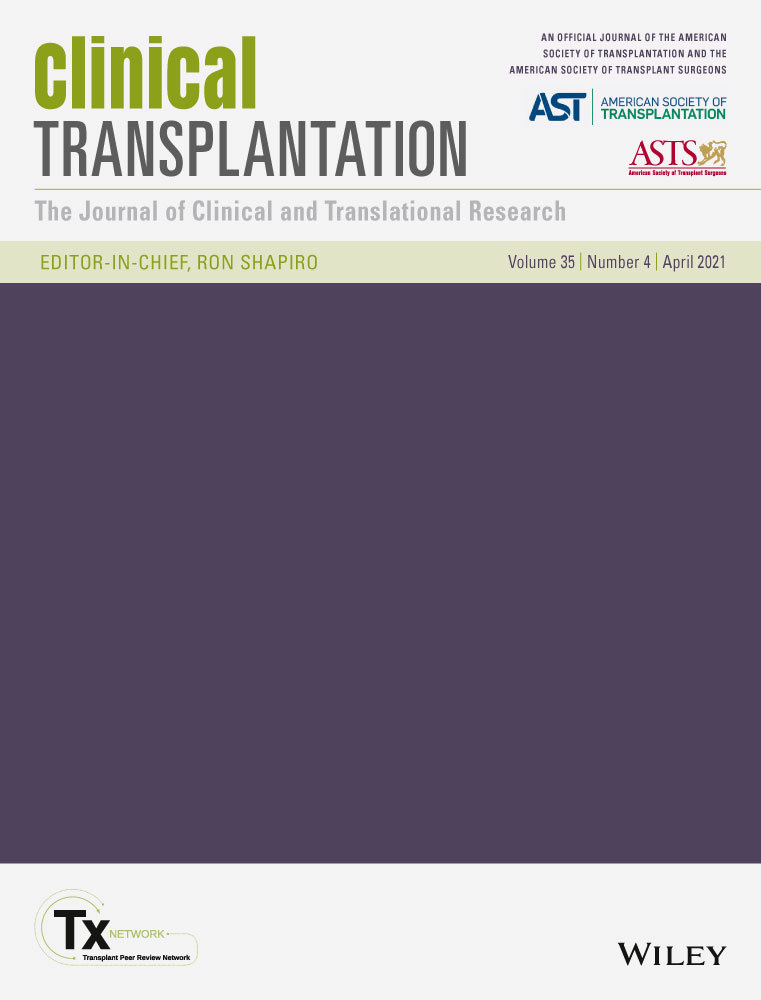The impact of marijuana use on liver transplant recipients: A 900 patient single center experience
Abstract
Introduction
Increased societal prevalence of marijuana continues to challenge liver transplant (LT) programs. This study aimed to examine the potential effects of marijuana use on outcomes.
Methods
This retrospective study included recipients who underwent LT between 1/2012 and 6/2018. According to pre-LT marijuana use, patients were classified into recent (≤6 months of LT), former (chronic use but not ≤6 months), or non-users. Additionally, the impact of post-LT marijuana use on survival was assessed.
Results
Of 926 eligible patients, 184 were pre-LT marijuana users (42 recent; 142 former) (median follow-up: 30.3 months). Pre-users were more likely to be male, White, and have histories of tobacco, alcohol, and illicit drug use. Additionally, recent users were of higher acuity, with higher MELD and requiring ICU admission. Patient survival at 1-year was 89% in non-users, 94% (HR: 0.494, 95% CI: 0.239–1.022 vs. non-users) in former users, and 83% (HR: 1.516, 95% CI: 0.701–3.282) in recent users. Post-operative complications in pre-LT users and the survival analysis for post-LT marijuana users vs. non-users did not show significance.
Conclusions
Our results demonstrated that marijuana use did not have an adverse impact on post-LT outcomes; however, further studies utilizing larger cohorts are warranted.
CONFLICTS OF INTEREST
The authors have no related conflicts of interest to declare.
Open Research
DATA AVAILABILITY STATEMENT
The data that support the findings of this study are available from the corresponding author upon reasonable request.




